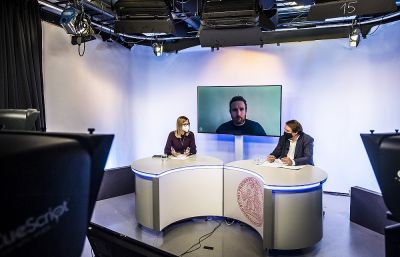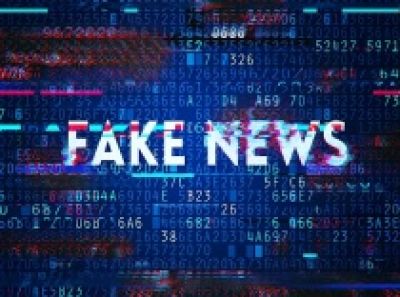From the Freemasons to the Jacobins and the mysterious Illuminati, take your pick: throughout history there has been no shortage of conspiracy theories suggesting the majority of us live with a veil over our eyes, oblivious to the truth. Which is? That in reality, there are shadow organisations pulling levers and operating to overthrow existing society and rule the world.
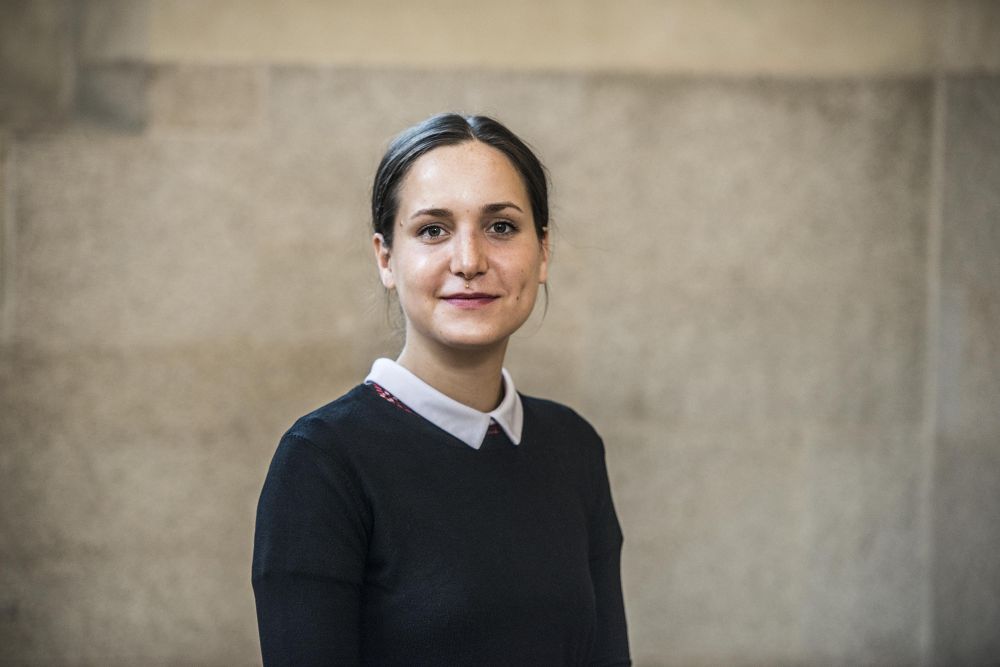
Modern day conspiracy theory has roots in the mid-20th century, fueled for eg. by the assassination of JFK, says Ph. D. student Kateřina Hlaváčová.
The notion that there are groups of evil people operating behind the scenes, working has been around for centuries and is still alive. New conspiracy theories, in the 20th century, are not so new after all, drawing heavily on ones that came before, says religious scholar Kateřina Hlaváčová. A Ph. D. student at the Hussite Theological Faculty at Charles University, Hlaváčová is primarily interested in fringe ideas of American evangelicals. Thus, QAnon as well as former president Donald Trump of central interest in her work.
My understanding is that conspiracy theories as we know them now, are largely anchored in the 20th century but at the same time have roots going back much further in time, is that right?
The idea that there are groups of people who are secretly planning something unfair against the rest of society has been around since time immemorial. We encounter them as far back as antiquity, when suspicions of conspiracy, often legitimate, were a common part of political discourse. Nor does conspiracism disappear with the advent of modernity, when man became the centre the expense of divine providence. Thus, it may have been perfectly rational for some to look for human intent behind the significant social changes of the time. It was also at this time that the first such theories emerged, describing the intent of the Masons, the Illuminati, the Jesuits, and other groups. These formed the backbone of contemporary conspiracy culture.
Early scholars understood conspiracism as something that occurred on the periphery of society, but American historian Gordon S. Wood, on the other hand, says that as late as the 18th and 19th centuries in the United States, it was perfectly common to think that conspiracies were threatening the country and society. Only they weren’t referred to as a “conspiracy theories” at the time.
When was the label, conspiracy theory, first used?
The term conspiracy theory as we see it today, as a sort of derisive label, only begins to take shape in the mid-20th century. First within academia, especially in the USA. In response to the horrors of the two world wars, scholars were sharply opposed to the manifestations of totalitarian thinking that they believed conspiracism led or played into.
However, the general popularisation of the term in the US was aided by the investigation into the assassination of President John Fitzgerald Kennedy (1963), when the CIA labelled as 'conspiracy theories' claims that did not fit the official findings of the [Warren Commission, ie. namely, that shooter Lee Harvey Oswald acted alone –ed. note]. The term caught on with journalists, and from them it spread into the public consciousness.
Regardless of whether there is any truth to specific conspiracy theories, it is a label that today serves primarily as a tool in a rhetorical struggle, delegitimizing someone's claims and automatically excluding them from further dialogue. In this way, today's ideas about unproven conspiracies differ from how they were treated in the past, even though, for example, already in the period after the French Revolution, which is generally considered the cradle of modern conspiracism, we encounter criticism against overly obsessive interest in the secret workings of evil forces.
| Fake news versus conspiracy theories It is important to point out that there is a difference between fake news and conspiracy theories. By definition, fake news is false information created with the intent to deceive for a specific purpose (financial, power, or political reasons). Moreover, not all fake news necessarily deals with the idea of conspiracy. A conspiracy theory is any interpretation of events that does not correspond to the official version of events as presented by politicians, mainstream media, scientists or doctors, for example. |
Why did research into conspiracy theories develop first in the USA?
I think the historical context of the United States itself is important here. The idea of conspiracies has played an important role throughout U. S. history, going back to the arrival of the first Puritan settlers who left the old “corrupt” world to build a new purified Christian society in North America. This was to follow God's will and act as a beacon of hope for the rest of the world, with a vision of the coming of Christ's kingdom. The conviction of this special “holy” mission, however, carried with it from the beginning the assumption of the existence of a diabolical conspiracy to thwart it. This narrative was behind, among other things, the witch trials in New England in the late 17th century.
The assumption of America's special role in human history (the concept of so-called “American exceptionalism”) is still alive, as are the fears of real or perceived enemies, which, in addition to the witches, in the past included the British and the British monarchy, Catholics, Freemasons, Illuminati, and Russia. Conspiracism, especially when combined with millennial expectations, can now be considered one of the hallmarks of American culture.

The pandemic proved ripe for conspiracy theories including that Covid was bioengineered and that vaccines introduced microchips into the body.
Why do some people have a tendency to believe in conspiracy theories?
As a religious scholar, I treat conspiracy theories primarily as forms of myths that can be interpreted in different ways. For example, in that myths serve as a means of reconciling the contradictions between the ideal norms of society and its actual functioning, while providing a logical framework for reality, they establish an identity. In this respect, then, I think conspiracy theories can work very well.
It is generally-assumed that people turn to conspiracy narratives in response to unexpected events, disasters, or even political, economic, and social crises that significantly shake their existing worldview. In psychological discourse, for example, specific terms refer to so-called paternity, an adaptive mechanism of the human mind that detects patterns or possible dangers in the environment in case a predator suddenly appears. Similarly, we see figures and faces hidden in the shadows of trees or clouds in the sky.
Conspiracy theories have also been interpreted as a manifestation of confirmation bias, which describes the tendency of humans to prefer and seek out information that confirms already accepted beliefs and values. Moreover, if a person has already incorporated some conspiracy narratives into his or her worldview, he or she may very easily be inclined to adopt other conspiracy theories.
The American political scientist Michael Barkun takes a slightly different approach to this, speaking, among other things, of the desire to explain away the presence of evil, to structure the world in black-and-white dimensions, which can lead to an almost obsessive interest in the hypothetical presence of evil conspirators in the world.
Whichever way conspiracy theories are interpreted, a pattern emerges whereby conspiracy interpretations of the world generally enjoy increased popularity in the wake of some extraordinary, usually negative event.
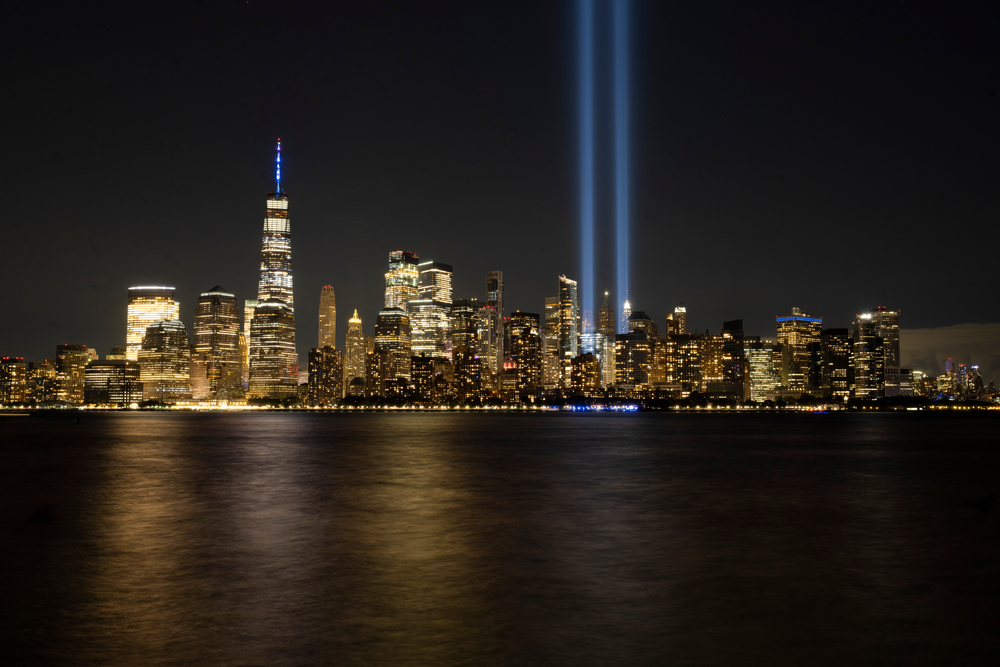
To this day, there are those who claim the 9/11 attacks were an "inside job" and that controlled demolitions destroyed the Twin Towers.
Is this why extraordinary events such as the assassination of US President Kennedy or the terrorist attack on the World Trade Center on September 11, 2001, sparked new waves of new conspiracy theories?
Conspiracy theories are with us all the time. Many of them come back in waves and are transformed by the demands of current events and reinforced during emergencies, as we have seen now during the pandemic.
Are there any conspiracy theories emerging in relation to the war in Ukraine?
I am not an expert on Russian conspiracism. However, as far as I know, there are many older conspiracy narratives circulating in Russia with deep roots, as in the US and Europe, with which they have much in common. Many of them were given their current framework in the late 19th and early 20th centuries, heavily influenced by the publication of The Protocols of the Elders of Zion (first published in 1903), which became especially popular after the Russian Revolution and the subsequent assassination of Tsar Nicholas II and his family in July 1918.
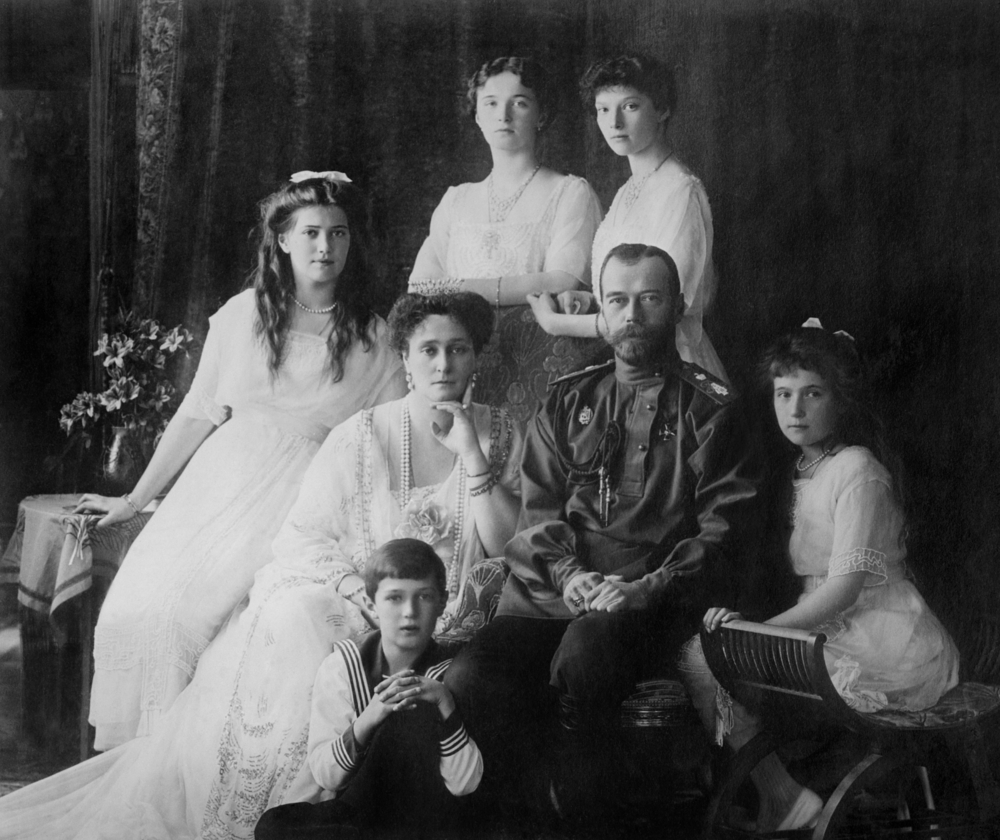
The doomed Tsar Nicholas II. and his family in 1914.
Events such as the Buche massacre in Ukraine this year then produce new, partial conspiracy theories, which are often subsumed under the all-encompassing notions of conspiracy, which are thereby further confirmed. There are several of these circulating in Russia, as in the West, and they are often intertwined. Interestingly, these “super-conspiracies”, as Barkun calls them, resemble in many ways the American ones. For example, they cast both the US and the Russian Federation as the last defenders of the “right values” in both secular and conservative Christian discourse.
There is a strong belief among Orthodox fundamentalists in Russia that Russia fulfils the role of the so-called katechon - the last force on earth to prevent the Antichrist from entering this world. The katechon is already mentioned in Paul's Second Epistle to the Thessalonians, but it is only in the medieval prophecies of the “last king”, who is sometimes identified with the katechon, that it is developed more fully. However, it can be a ruler as well as a country or an empire. From this perspective, Russia is seen as the last bastion of orthodox Christianity. From this position, it must fight the rest of the world that has fallen away from the true faith. The main enemy is seen as the West and especially the USA as the “Western Antichrist”. The evil that is being perpetrated against Russia (including, for example, Russophobia) is interpreted as a manifestation of the workings of a (diabolical) conspiracy that seeks to destroy Russia and, by extension, the Christian Church.
As part of your research, you have examined the Protocols of the Elders of Zion in detail, in what environment and for what reason did they emerge?
The Protocols of the Elders of Zion appear in Russia at a time when not only Russia but also Europe was facing many crises and can also be interpreted as one of the reverberations of the French Revolution.
The Protocols were a forgery, which was also fairly quickly proven (unlike some of their predecessors, whose authors were probably realistic about the existence of the conspiracies they wrote about). Yet they are still popular today. They enjoy great popularity in Russia or even in some Middle Eastern countries, while in the West, because of their strong association with the Holocaust and anti-Semitism, conspiracists are somewhat more cautious about them. This does not mean, however, that they are completely forgotten. In 2015, for example, a new Czech translation of the Protocols with commentary was published in this country by the (now defunct) publishing house of the anti-Jewish conspiracist Adam B. Bartoš.
The Protocols of the Elders of Zion purports to be an authentic record of a secret meeting of Jewish conspirators - the “Elders of Zion” - who hatch a plan for world domination. To this end, they were already supposed to control politics and the civil service, as well as, for example, the financial sector and the media, through which they secretly manipulate the masses. Such a vision of the conspiracy is already suggested by the theories that appeared soon after the French Revolution and in the 18th and 19th centuries. Besides the fact that the Protocols built on pre-existing conspiracy ideas, they were helped to succeed by the fact that they are written in a rather vague way and you can include almost anything under them. That's where their strength lies, and the fact that they are still relevant to contemporary conspiracy culture after more than a century.
In your current research, have you focused on American conspiracy theories? What specifically interests you?
As part of my doctoral studies, I am primarily interested in the contemporary American conservative Protestant milieu. I am interested in the conspiracy theories that we find in the evangelical milieu that work with the theme of expecting the second coming of Jesus Christ. Among evangelicals and other groups of conservative Christians in the US, a version of eschatological doctrine called premillennialism dominates. According to this, the millennial kingdom is to be preceded first by the temporary reign of the antichrist. This will not just happen, however, but will be the result of evil forces at work in this world that will lead many away from the faith. In addition to the many similarities to conspiracism on the level of doctrine, or perhaps a way of interpreting the world based on a particular approach to Scripture, the motivation for believing in and spreading conspiracy theories is also due to the need to call attention to the existence of a diabolical conspiracy that can directly affect your salvation.
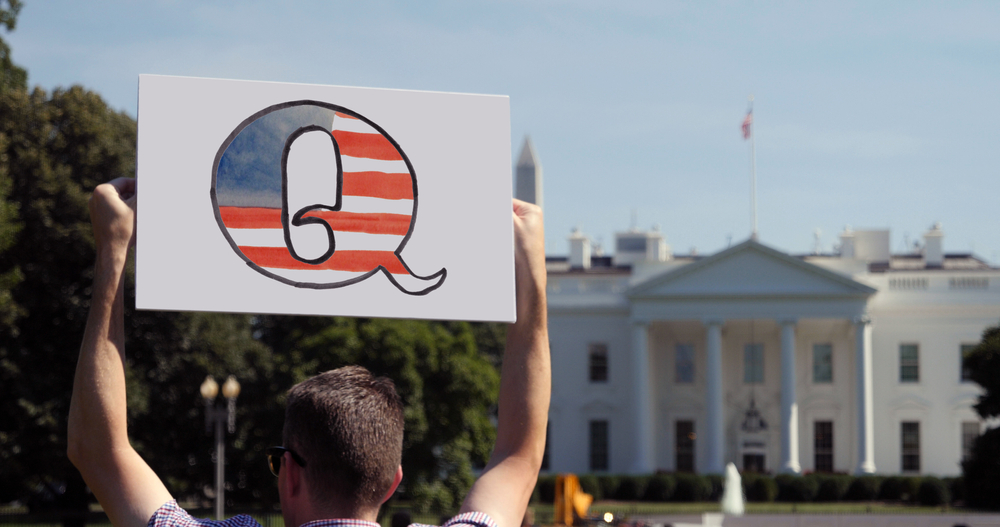
Many followers of QAnon see US ex-president Donald Trump as the main warrior against a diabolical conspiracy.
The QAnon conspiracy theory became widespread in the United States (and not only there) in recent years, what role does Donald Trump play in it?
QAnon does appear to be a new conspiracy theory, but apart from addressing some contemporary issues, it is not actually original to older conspiracy narratives about the New World Order, the Illuminati, etc. As a continuation of the conspiracy theory, Pizzagate also built its initial popularity on the still-living phenomenon we now refer to as the “Satanic Panic” which hit America hard, especially in the 1970s and 1980s.
The greatest boom in conspiracy imagery associated with QAnon occurred during the early months of the pandemic. It was also influenced by the uproar surrounding the 2020 US presidential election, when then-President Donald Trump pointed to alleged vote-rigging in favour of his opponent and eventually new US President Joe Biden. While QAnon followers can be found outside the United States, this conspiracy theory reflects much of the political, religious and social situation there, framed in complex visions of global conspiracy that may make it appeal to conspiracists outside the US.
The core of QAnon is that there is a conspiracy of elites (Democrats, billionaires, Hollywood celebrities and other influential figures) who worship Satan and practice ritual infanticide. However, there are also people who are fighting against this diabolical conspiracy and they are led by Donald Trump, who they think has a plan to expose them and defeat them, which will be followed by an age of peace and prosperity.
In the United States, QAnon is associated with the far/right and Christian right and also strongly with the evangelical milieu, although of course it is not only found among evangelicals. Although QAnon cannot be so easily and unambiguously defined, it is the trust placed in Donald Trump that we might identify as one of its characteristics. This may seem like a paradox, because Donald Trump does not at first glance appear to be a model of a proper Christian. Yet, many QAnon followers speak of him as the chosen “saviour” who in some ways comes close to the idea of a katechon, or the last monarch already mentioned. For his virtues are not a noble and pious life so much as the strength and determination to stand firm against the enemies of Christianity.
It should also be remembered that issues related to religion are very important in American political discourse (unlike ours) and seem to be more than ever a part of the political landscape in some form and intensity. People are interested in what religion political leaders are, how strong a president's faith is, etc.
What is it?
I am not a political scientist, but since the 1960s and 1970s, what is now called the Christian Right has been forming in the US, representing a coalition of conservative Christians. It's making its way into the political mainstream. It began to take shape in response to a perceived weakening of the Christian ethos in American society, a theme that is still relevant among conservative Christians.
In light of the war in Ukraine, escalating international tensions, and the economic and energy crises, can we expect new conspiracy theories to emerge or reinforce some of the existing conspiracy narratives?
Certainly yes. I don't think anything has changed in this regard. The old, well-functioning conspiracy narratives will be refreshed with new themes, in a way that fits into the overall picture of the conspiracy, and maybe some new, slightly more specific narratives will emerge, as they did with QAnon.
| Kateřina Hlaváčová |
| Kateřina Hlaváčová deals with conspiracy theories in relation to religion, especially Christianity, Judaism and Western esotericism. She graduated in Religious Studies at the Faculty of Arts of Charles University and also at the Hussite Theological Faculty of Charles University, where she also studied Hussite Theology and Jewish Studies. In her scientific work, she has dealt with the witch trials or the Protocols of the Elders of Zion. She is currently working on a dissertation at the Hussite Theological Faculty tracing conspiracy narratives in the context of American religiosity. She is currently on a research fellowship at the University of Heidelberg. |



